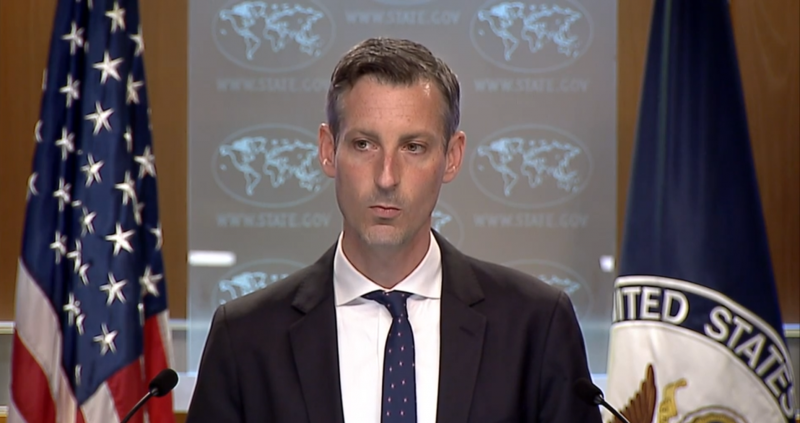
State Department Spokesperson Obscures US Stance on Western Sahara
State Department spokesperson Ned Price muddied the waters on the topic of the US’ recognition of Morocco’s sovereignty over Western Sahara.
US State Department Spokesperson Ned Price commented on the Biden Administration’s ambiguous stance on Western Sahara, during a press briefing on June 9.
An AP journalist posed the question, “Are we wrong to assume that there is continuity in the U.S. position on the [Western Sahara] issue?”
Price responded on behalf of the Biden Administration and said, “it’s an issue that we have discussed directly with our counterparts in Morocco, our counterparts in Spain, and elsewhere through the region.”
He added, “but I think more broadly, there is a very little continuity, I think it is safe to say, when it comes to our approach to the broader region.”
The statement on Western Sahara continues months of statements that refrain from issuing a definitive statement on Western Sahara. While US government organizations are recognizing the Trump decision in practice, US rhetoric on the issue has remained stand-offish.
The response appears strategically vague as the Biden Administration remains hesitant in offering a direct endorsement for Morocco’s sovereignty over Western Sahara.
Political analysts speculate whether or not the lack of a conclusive endorsement continues to keep the Western Sahara as a point where the US has some strategic leverage over Morocco while continuing bilateral security and trade cooperation.
Rather than in any way reverse the Trump Administration’s decision to recognize Moroccan sovereignty, the Biden Administration appears to seek to maintain its bargaining chip in MENA policy while also distancing itself from the policy of the previous administration.
Rhetoric vs. Reality
Price added President Trump’s “broader approach to the region” may be the point on which the two administrations differ, implying that there is indeed agreement on the Sahara dossier.
The spokesperson’s statements continue the US’ rhetoric while in practice the US continues to formalize its 2020 decision. This trend was again evident in the State Department’s decision in May 2021 to unarchive the Abraham Accords, signaling the officialization and acceptance of the declaration by the current US administration.
While the US has subtly officialized its recognition of Moroccan sovereignty by introducing new maps in official US agencies, its rhetoric continues to be evasive and vague.
It appears the Biden administration is trying to placate domestic audiences by signalling a break with Trump policies in all forms, while avoiding reversing key Trump decisions on the UAE, Afghanistan and Morocco.
While Biden distances himself from Trump domestically, his administration further ever deeper security cooperation, with Morocco as the US’ most prominent ally with a foothold in both North Africa and the Sahel region. Morocco remains the only major non-NATO with significant political and economic influence in West-Africa amid regional tensions and continued instability.
Economically, Morocco is the only country in Africa to have a free trade agreement (FTA) with the US, which combined with Morocco’s FTA with the EU, makes the country a gateway for international trade. This importance has clearly been recognized in Washington, as the US has invested significantly in the Dakhla region to develop a giant new trade port.
Abraham Accords
Citing President Trump’s Abraham Accords initiative, Price suggested that the Biden Administration’s approach and policies to the region show “quite a bit of discontinuity.” Despite Biden continuing Trump’s withdrawal from Afghanistan, and appearing to respect Trump’s quid-pro-quo agreements with the UAE and Morocco.
For a domestic audience however, Biden is keen to project change from a historically unpopular US president, even if only rhetorically when it comes to foreign policy.
One foreign policy initiative that Biden has been reluctant to change US policy is the Abraham Accords, which marked the establishment of diplomatic relations between Israel and several Arab countries such as Bahrain, Sudan, and the UAE.
Morocco signed up to the Abraham Accords in December 2020, amid a diplomatic trend that was seeing an increasing number of countries voice their support for Morocco’s autonomy plan in Western Sahara.
A growing number of countries from around the world have demonstrated their unwavering support for Morocco’s sovereignty in the region by building consulates in Morocco’s southernmost cities of Dakhla and Laayoune.
Included in the list of consulates is the US, UAE, Jordan, Bahrain, Senegal, Cote d’Ivoire, and a long list of other African nations.
Source: Morocco World News.
